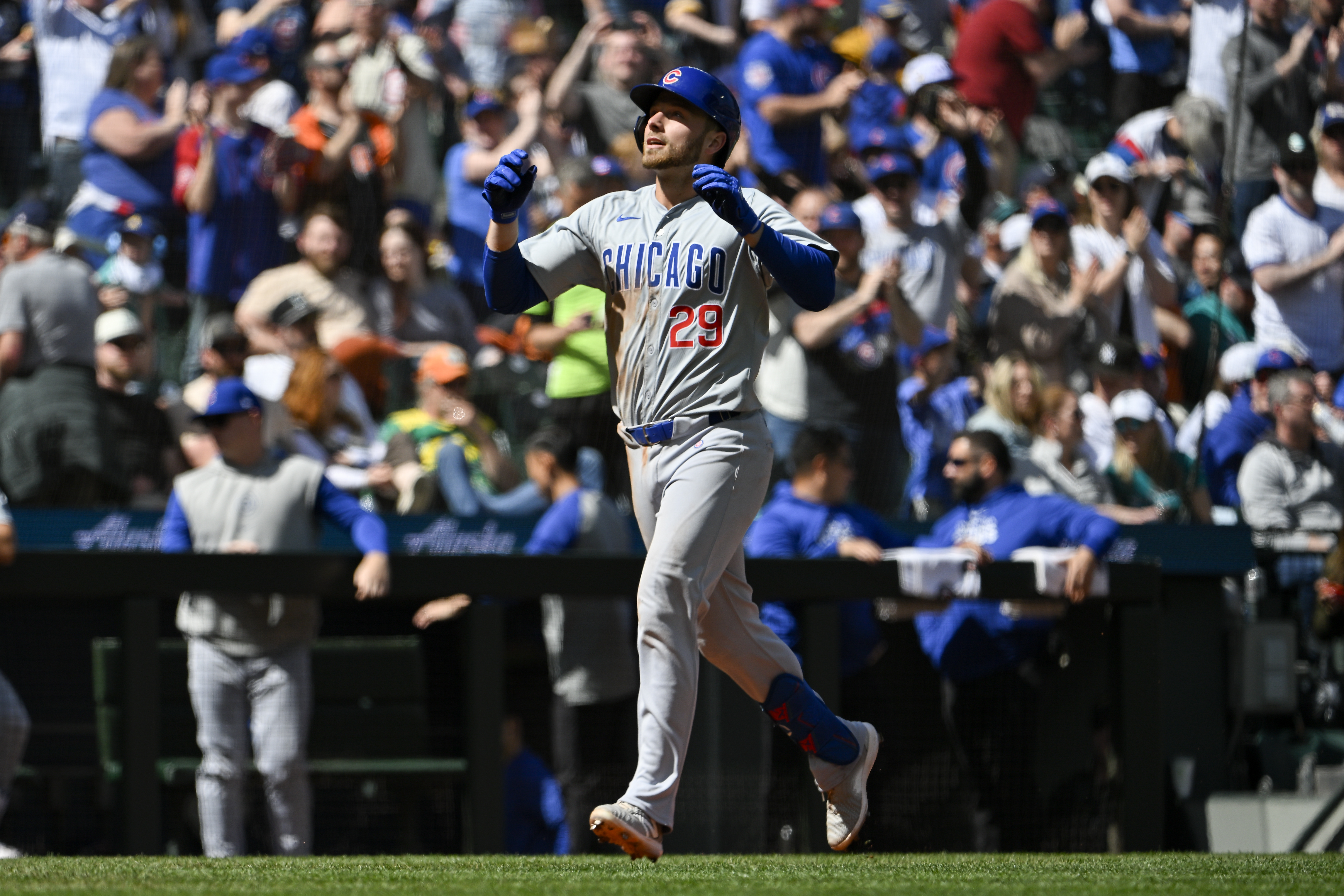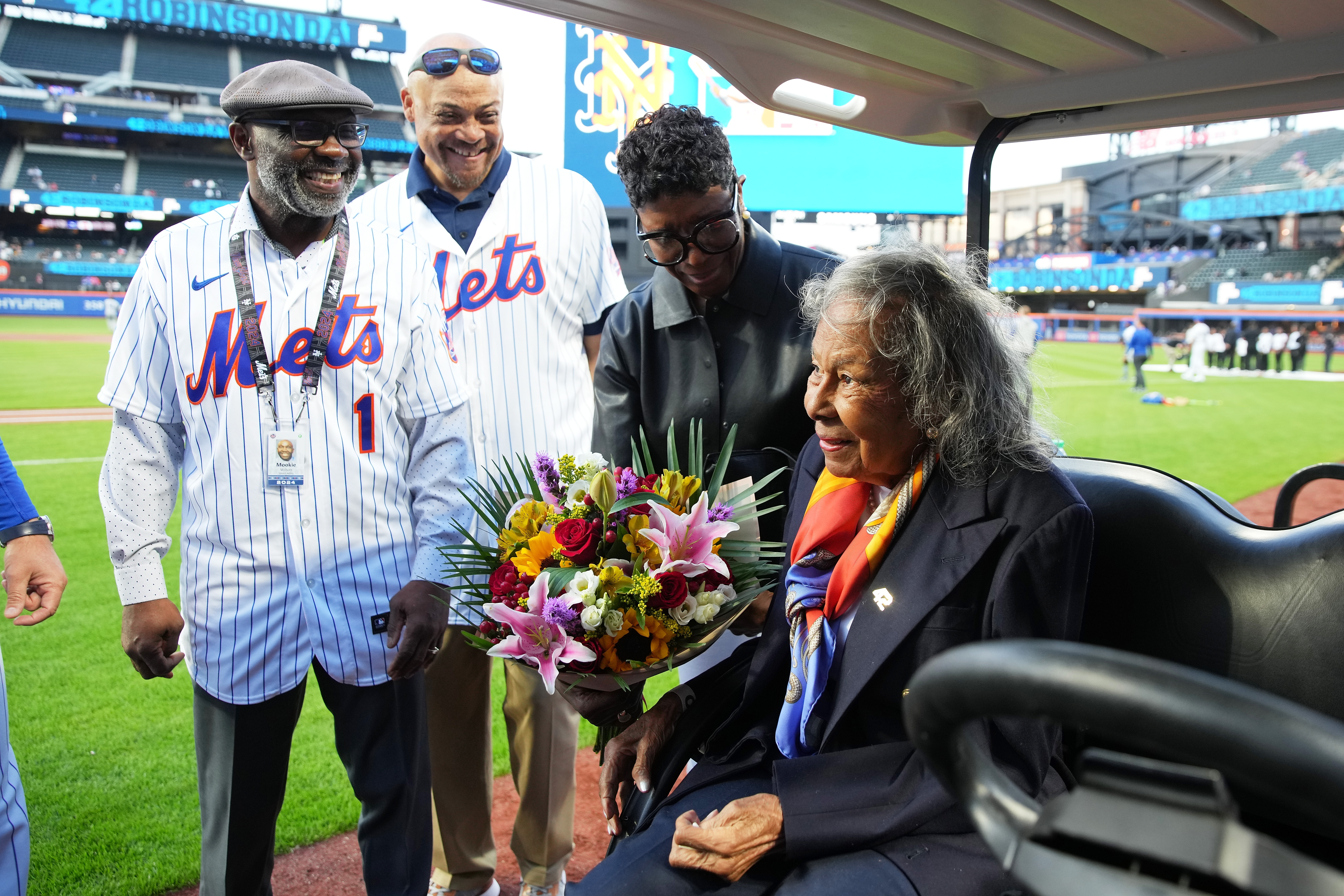There were no offers in the offseason from the Cubs. Not to Anthony Rizzo, Javy Báez and obviously Kris Bryant.
Despite optimistic speculation, bad reports and loose rumors throughout the lockout-lengthened offseason — in particular regarding Rizzo — the Cubs had moved on without so much as a phone call of interest, sources confirmed.
What about all that “We’re not closing the door” empty rhetoric from team officials after the three championship-core players were traded instead of extended last summer?
“I think that’s just a way to soften the blow,” Rizzo said Thursday before his Yankees opened a four game series against the White Sox on the South Side.
Soften the blow?
Fans of the North Side’s two-time tankers with the 11-19 record are still waiting.
MLB
The Cubs never intended to bring any of them back once they were traded. The last offer any of them got was the five-year offer Rizzo got to take a pay cut after over-performing the team-friendly deal he played under the previous nine seasons.
And then they were gone. And with them all that so-called “culture” the Cubs used to like to brag about (and to some extent still do).
Culture is one of the most overused, meaningless terms in sports.
But if such a thing as culture — specifically, winning culture — means anything, anywhere, in sports, Rizzo’s current team might be about the only place to find it.
And the Yankees spent more than 100 years building it.
The Cubs spent 100 years building something entirely different until Theo Epstein, Jed Hoyer, Rizzo, Bryant, Báez, Jon Lester, et al, came along. Then after tanking to assemble those players and the teammates who would win an average of 92 games a year — and their celebrated championship — over a five-year stretch, the dumping, non-tendering, trading and excuse-making began.
But through ownership’s complaints about “biblical” pandemic losses, Epstein’s resignation a year early and Hoyer’s cost-cutting mess to clean up, the talk of having changed the culture lingered.
It doesn’t work that way.
If the big-revenue Cubs succeeded in building the winning culture they talked about, they pissed it away with a two-year purge that has left them staring at a second lengthy rebuild in a decade.
If they raised expectations with their success, that just raises the anger level now among fans who were promised “sustained” success but got a cut-rate roster while World Series-winning favorites Rizzo, Bryant, Báez and Kyle Schwarber got $433 million in contracts from other teams over the winter.
Look no further than the Dodgers’ lopsided sweep of the Cubs over the weekend to know how far away they are from competing against other big-market teams who have taken different approaches.
Look no further than the front of Rizzo’s new uniform to know how different their so-called culture is from yet another upper-tier revenue peer.
Rizzo, who re-signed with Yankees for two years, $32 million, after being traded to New York last summer, knows the difference by now.
“I have nothing bad to say about the Chicago Cubs. They’re going to do do what they want to do,” he said during a conversation with NBC Sports Chicago after a scheduled media conference Thursday.
Only three players remain from the championship, and the only Cubs All-Star among them — Willson Contreras — is all but assured of being traded at this year’s deadline.
What happens to all that “culture” if they trade all the productive players who built it?
“Maybe it’s different,” Rizzo said. “Maybe the culture does go back to something else. Every team has its niche.
“You just hope there’s some traditions that carry on.”
Rizzo was not happy at the lowball offer he got from the Cubs during the spring of last year. He didn’t get as big a total offer as a free agent, but he did get more annual value and a team with which he shared mutual trust after a down season impacted by a late-season bout of COVID-19.
“Obviously, I didn’t have a good last year by my standards,” Rizzo, the No. 2 free agent first baseman on the market, said, pointing out the six-year, $162 deal No. 1 Freddie Freeman got.
“I go out and have a normal year, and the money I would be giving up by signing that deal [the Cubs] offered just didn’t make sense.”
It wasn’t all about the money, he said. He wanted to come back. Might have taken less than perceived market value.
“I was emotionally invested in the Chicago Cubs, in being a Chicago Cub,” said Rizzo, who was traded by Epstein in Boston to Hoyer in San Diego and then to both in Chicago before becoming a Cubs All-Star. “I met my wife Emily, and we grew up together a lot here. She’s emotionally invested in the city and the fans and the Chicago Cubs.
“I expressed it 100 different times how I wanted to be there for life.”
Things are certainly good now for Rizzo, who plays for the best team in baseball, near the hometowns of his parents — his dad, John, a a longtime Yankees fan who’s now a Yankee Stadium regular wearing his NY cap.
And the Cubs might even be better than people think, sooner than people think, he suggested — even if Hoyer and the Cubs already are starting to get the feeling that a rebuild to the top of the mountain twice in such a short stretch of time might not be as smooth as the first time around.
Rizzo said he’s happy how things ultimately turned out. Even if he admits to feeling anything but with how things ended in Chicago.
“You just know it’s a business. They had to make tough decisions,” he said during the larger media session Thursday. “As a human being, was I pissed off? Of course. But as a baseball player who sees what happens, this is a business. That’s the way it is.”
And that’s the only “culture” that mattered.


